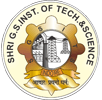B.Tech. Electronics and Instrumentation Engineering
Program Outcomes (POs)
|
PO1 : |
Engineering knowledge: Apply the knowledge of mathematics, science, engineering fundamentals, and an engineering specialization to the solution of complex engineering problems. |
|
PO2 : |
Problem analysis: Identify, formulate, review research literature, and analyze complex engineering problems reaching substantiated conclusions using first principles of mathematics, natural sciences, and engineering sciences. |
|
PO3 : |
Design/development of solutions: Design solutions for complex engineering problems and design system components or processes that meet the specified needs with appropriate consideration for the public health and safety, and the cultural, societal, and environmental considerations. |
|
PO4 : |
Conduct investigations of complex problems: Use research-based knowledge and research methods including design of experiments, analysis and interpretation of data, and synthesis of the information to provide valid conclusions. |
|
PO5 : |
Modern tool usage: Create, select, and apply appropriate techniques, resources, and modern engineering and IT tools including prediction and modeling to complex engineering activities with an understanding of the limitations. |
|
PO6 : |
The engineer and society: Apply reasoning informed by the contextual knowledge to assess societal, health, safety, legal and cultural issues and the consequent responsibilities relevant to the professional engineering practice. |
|
PO7 : |
Environment and sustainability: Understand the impact of the professional engineering solutions in societal and environmental contexts, and demonstrate the knowledge of, and need for sustainable development. |
|
PO8 : |
Ethics: Apply ethical principles and commit to professional ethics and responsibilities and norms of the engineering practice. |
|
PO9 : |
Individual and team work: Function effectively as an individual, and as a member or leader in diverse teams, and in multidisciplinary settings. |
|
PO10 : |
Communication: Communicate effectively on complex engineering activities with the engineering community and with society at large, such as, being able to comprehend and write effective reports and design documentation, make effective presentations, and give and receive clear instructions. |
|
PO11 : |
Project management and finance: Demonstrate knowledge and understanding of the engineering and management principles and apply these to one’s own work, as a member and leader in a team, to manage projects and in multidisciplinary environments. |
|
PO12 : |
Life-long learning: Recognize the need for, and have the preparation and ability to engage in independent and life-long learning in the broadest context of technological change. |
Programme Educational Objective (PEOs)
The program educational objectives (PEO) of the Electronics and Instrumentation Engineering program ensures graduates are fundamentally solid, practical, dependable, collaborative and professional. The graduates could demonstrate the following essential components of a successful engineer within two to four years after the graduation:-
|
PEO1: |
Graduates will demonstrate technical competency leading to expert engineer. |
|
PEO2: |
Graduate could design & analyze product based solutions to the multidisciplinary problems. |
|
PEO3: |
Graduated profrssional with ethical attitude & leadership qualities to become professional engineers leading to a successful career. |
|
PEO4: |
Graduates will demonstrate commitment toeards sustainable development for the betterment of society and enviromental factor. |
|
PEO5: |
Graduates will pursue lifelong learning in generating innovative engineering solutions using research and complex problem -solving skills. |
M.Tech. Electronics and Instrumentation Engineering
Programme Outcome (POs)
|
PO1 : |
An ability to independently carry out research /investigation and development work to solve practical problems. |
|
PO2 : |
An ability to write and present a substantial technical report/document. |
|
PO3 : |
Students should be able to demonstrate a degree of mastery over the area as per the specialization of the program. The mastery should be at a level higher than the requirements in the appropriate bachelor program. |
| PO4: | An ability to function effectively as an individual or as a team member in the field of Specialization to achieve the desired objective. |
| PO5: | An ability to engage in independent and life-long learning in the broadest context of technological change. |
Programme Educational Objective (PEOs)
|
PEO1: |
Identify and apply appropriate Electronic Design Automation (EDA) to solve real world problems in Microelectronics and VLSI domain to create innovative products and systems. |
|
PEO2: |
Pursue career in research in Microelectronics and VLSI Design domain through self learning and self directed on cutting edge technologies. |
|
PEO3: |
To provide a well-rounded education that includes communication skills, the ability to function well on a team, an appreciation for ethical behavior, and the ability to engage in lifelong learning. |
|
PEO4: |
Acquire competency in areas of Microelectronics and VLSI Design, IC Fabrication, Design, Testing, Verification and prototype development focusing on applications. |
Program Specific Outcomes (PSOs)
Program Specific Outcomes (PSOs) are statements that describe what the graduates of a specific engineering program should be able to do . A list of PSOs written for the department of Electronics & Instrumentation Engineering is given below.
|
PSO1: |
Capable of solving complex problems in the field of Instrumentation with hands on different compatible platform. |
|
PSO2: |
Should be able to associate the learning from the course related to Process control and PLC/SCADA system to arrive at solution to real world problems. |
|
PSO3: |
Capability to comprehend with the technological advancements in VLSI Design & semiconductor technology with morden EDA tools. |


